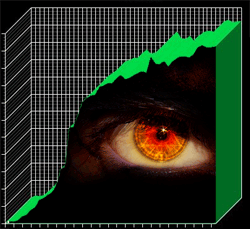Rogue Anti-Spyware Infections Increased by 25 Percent on the Day After Christmas
 People who have new electronic gadgets from Santa ended up with a digital lump of coal again this year as malware infections spiked 25% on the day after Christmas. That's according to a new report created by SpywareRemove.com's Threat Research Center.
People who have new electronic gadgets from Santa ended up with a digital lump of coal again this year as malware infections spiked 25% on the day after Christmas. That's according to a new report created by SpywareRemove.com's Threat Research Center.
SpywareRemove's latest malware analysis report shows a small jump (about 4%) of malware detections from December 24th to the 25th. Yet on December 26th, there was a considerable spike of up to 25%. As Internet traffic increases over the festive period, so do incidents of malware attacks, spam, social bookmarking phishing links, spoofed infected websites, malware-laced advertisements, clickjacking schemes and other types of online scams.
"We see this traffic trend happen every year," said Alvin Estevez, editor of SpywareRemove.com and CEO of Enigma Software Group. "Any time there's a jump in Internet activity, like you would expect in the days following Christmas, there is also a jump in malware infections. The bad guys know there is fresh blood out there, and they do their best to infect and destroy."
SpywareRemove.com focuses particular attention on what are called rogue anti-spyware programs or fake AVs. They are designed to lure computer users into believing they're infected with malware and demand a payment to remove the imaginary infection.
Rogue anti-spyware applications can be installed by Trojans, which are frequently bundled with downloadable applications or freeware. Usually the bundled software is found on file sharing sites such as bitTorrents, bogus malware scanner sources, or malicious porn sites. Due to the fact that rogue anti-spyware applications fall short of having malware detection or removal functions, computer users end up wasting valuable time and money by purchasing such programs. Moreover, by purchasing rogue anti-spyware programs, computer users unwillingly place their credit card information in the hands of hackers who could make fraudulent charges at will.
"We saw several rogue anti-spyware programs having a field day on Christmas Day and the day after," Estevez said.
Here is a list of the rogue antivirus/anti-spyware infections that caused the most activity on December 26th. You'll notice they all have somewhat legitimate-sounding names, but they are anything but real. These five rogue security programs accounted for more than 35% of the total malware detections, as reported by SpywareRemove that day.
Leave a Reply
Please note that we are not able to assist with billing and support issues regarding SpyHunter or other products. If you're having issues with SpyHunter, please get in touch with SpyHunter customer support through your SpyHunter . If you have SpyHunter billing questions, we recommend you check the Billing FAQ. For general suggestions or feedback, contact us.